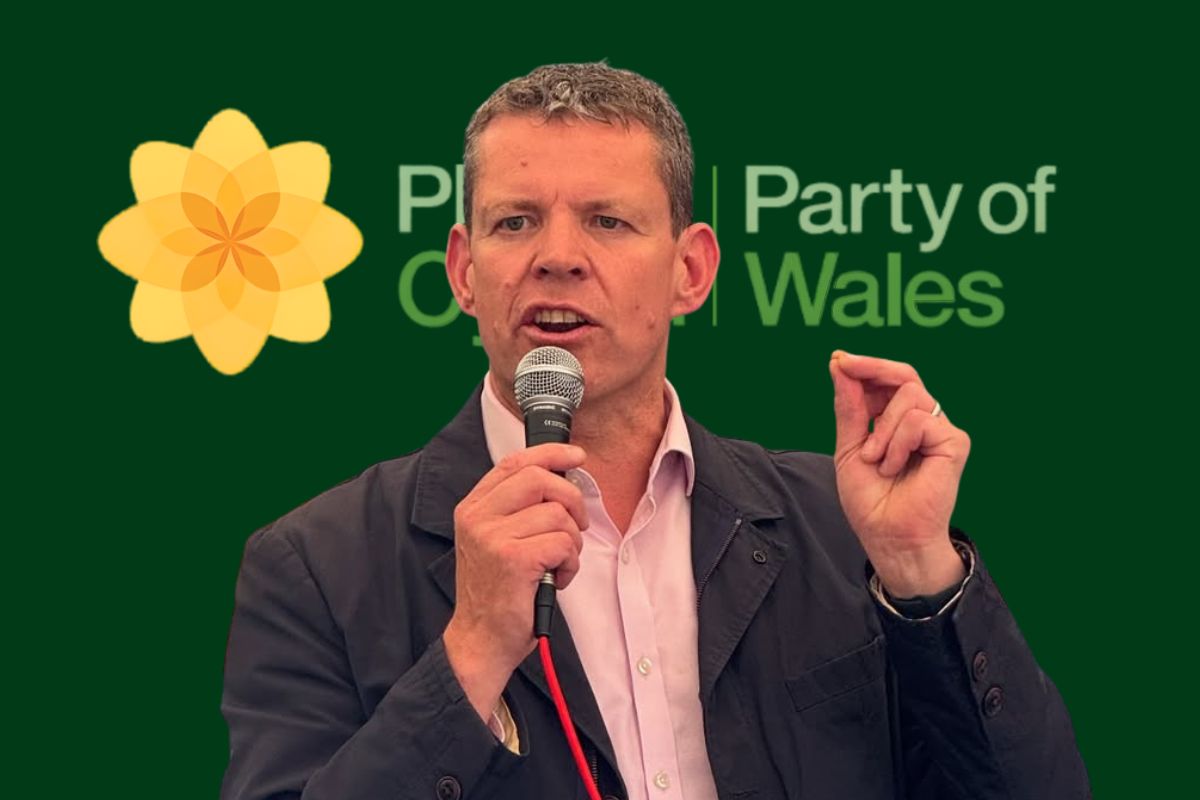Plaid Cymru’s present leader, Rhun ap Iorwerth, is shaping the destiny of Welsh politics on matters of national identity, social justice, and autonomy. His tenure as the Plaid Cymru leader, since he was elected to that position in June 2023, has been dedicated to strengthening the Welsh voice in the UK, making public services better, and spearheading economic growth in terms of sustainability and fairness.
Plaid Cymru, or The Party of Wales, desires a more independent and equal Wales — and in Rhun ap Iorwerth, that aspiration has been revitalised and a new direction provided.
Who is Rhun ap Iorwerth?
Born in Tonteg, Pontypridd, on 27th August 1972, Rhun ap Iorwerth was brought up on Anglesey (Ynys Môn) island. He has a deep Welsh language and culture upbringing that is very much still at the centre of his politics.
He studied Politics and Welsh at Cardiff University and afterwards was a BBC Cymru Wales journalist. Throughout over two decades of experience in the media, he became well-respected and an effective communicator — qualities which would later so well stand him in good stead to enter politics.
His experience in the media, coupled with an intimate knowledge of Welsh public affairs, set him apart as someone well-suited for leadership within Plaid Cymru.
Political Career
Rhun ap Iorwerth was introduced to politics in 2013 when he was elected Ynys Môn Member of the Senedd (MS). His main parliamentary concerns when entering office were the economy, transport, and health and social care — all the big issues that affect day-to-day life in Wales.
He continued to be one of the most familiar and respected figures within Plaid Cymru. Accountability, justice, and Wales’ right to choose its own destiny were frequent themes to be encountered in his electioneering and oratory.
When Adam Price stepped down as party leader in 2023, Rhun ap Iorwerth was voted in to lead Plaid Cymru towards a prosperous, pragmatic future and a future filled with fresh hope for independence for Wales.
Leadership Vision for Plaid Cymru
Rhun ap Iorwerth, as the Plaid Cymru leader, has presented a clear and unambiguous vision for Wales. His most important priorities can be characterised by three broad themes: governance, economy, and national identity.
1. Welsh Governance Building On
Rhun wants Wales to have more control over its own future. While full Welsh independence remains the ultimate goal, he is dedicated to a step-by-step process — beginning with more self-rule, improved Westminster funding, and greater accountability in Welsh public services.
He has long argued that independence does not have to be rushed but can be built well on the foundations of trust, capability, and economic strength. For him, independence is a path to a more equal, more confident Wales, not an endpoint.
2. Reviving the Welsh Economy
Plaid Cymru aims to improve the Welsh economy. They focus on clean energy, support for local businesses, and fair pay. Rhun ap Iorwerth supports clean industry investment, rural investment, and technology. These efforts aim to create long-term, high-value jobs.
He supports better transport links and infrastructure in Wales. He believes these are key to boosting economic growth and connecting communities.
3. Promoting Welsh Culture and Language
Welsh (Cymraeg) is at the heart of Plaid Cymru’s purpose. Rhun ap Iorwerth says bilingual education, Welsh-language media, and heritage should be key during his term.
He speaks of the Welsh language typically as a source of resilience and identity — a living link between the country’s history and future ambitions.
Challenges Facing the Plaid Cymru Leader
While the leadership of Rhun ap Iorwerth has been encouraging, he too faces enormous challenges.
- Political Opposition: Plaid Cymru competes with the strong Welsh Labour Party and newcomers like Reform UK. To win the upcoming elections, Rhun must spread Plaid’s message beyond its usual strongholds. This means reaching out to more urban and non-Welsh-speaking areas.
- Public service reform: Wales will need to continue to fight issues with health, education, and housing. Rhun has promised to address inefficiency in big health boards, like Betsi Cadwaladr. He aims to improve outcomes for the people.
- Re-establishing trust: Through the application of past in-house reviews, he has sought to re-establish the public’s faith and promote a culture of transparency and respect within the party.
Despite such setbacks, his leadership style has been defined by a thread of ambitiousness, togetherness, and realistic optimism.
A Party Prepared for Government
Plaid Cymru’s new agenda with Rhun ap Iorwerth is not only to set policy but to lead the Welsh Government. With future Senedd reforms taking the number of seats to 96 and using a more proportional voting system, Plaid feels it can alter the politics of Wales.
Rhun has toured every constituency in Wales on a “listening mission,” speaking to communities and listening to suggestions for the party’s next manifesto. His aim is unmistakable: to make Plaid Cymru the automatic choice for those who want change founded on Welsh values.
The Future of Plaid Cymru Under Rhun ap Iorwerth
With Rhun ap Iorwerth at the helm, Plaid Cymru is set to become an emerging, open, and solution-driven party. Rhun ap Iorwerth has changed Plaid’s face — from being a purely nationalist movement to a broad political home for all who sense in defending fairness, sustainability, and national pride.
He is the kind who envisions a Wales in which prosperity and identity go hand in hand. His leadership not only guarantees to shape politics but to imbue the new generation of Welsh citizens with the pride of what Wales has to be proud of.
Conclusion
Rhun ap Iorwerth’s leadership of Plaid Cymru is a period of transformation in Welsh politics. Bilingual and charismatic, deeply rooted in Welsh tradition, he is a vision of a new, independent, successful, and confident Wales.
As Plaid Cymru leader, he has the twin mission of rejuvenating his party and convincing the voters that an independent Wales will thrive. But his cautious, holistic approach gives a certain path to progress — one that could alter the nation’s political fate for centuries to come.










